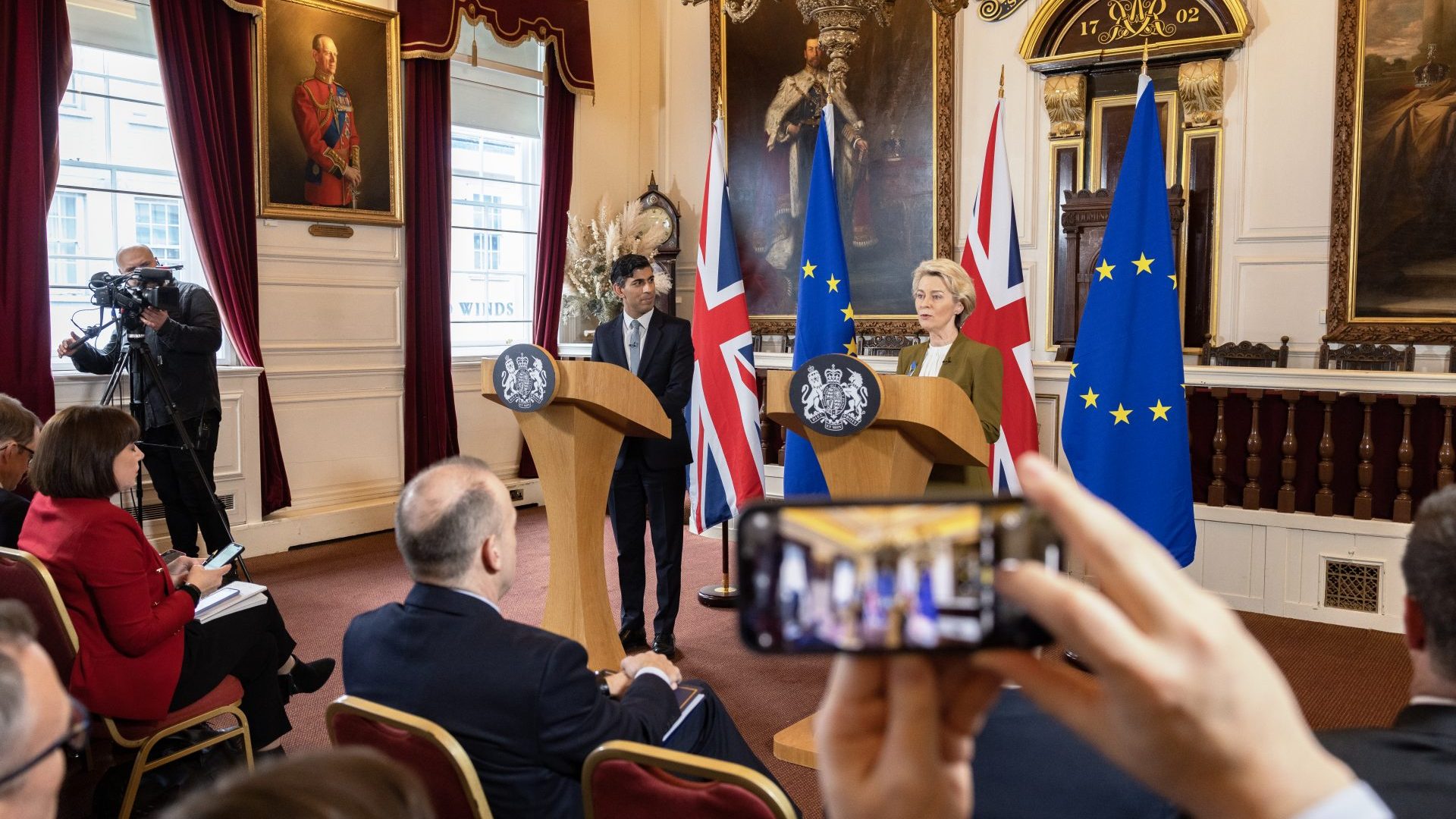Less than a week ago, Rishi Sunak must have felt the man who had done the impossible: squared the circle of Northern Ireland’s post-Brexit border and simultaneously ended the Conservative Party’s decades-land psychodrama over Europe.
The media coverage was largely celebratory, the fix – the Windsor Framework – clearly an improvement on Boris Johnson’s botched protocol and even the most intransigent of European Research Group members bit their tongues, if not embracing it.
And yet. And yet. A weekend to dwell on the detail and a least a layer of shine seems to have come off Sunak’s apparent triumph. The loose lips of an EU diplomat, the radio silence of the DUP and the perpetual threat of a vengeful Johnson may make the floor upon which the prime minister is attempting to carry a Ming vase considerably slippier.
First, those EU comments. Yesterday, the Sunday Telegraph – a paper still in thrall to Trussonomics – reported on a leaked recording of Maroš Šefčovič telling the European Parliament’s Brexit committee that the framework did not hand back full sovereignty over Northern Ireland to the UK. The pact, he said, was simply designed to avoid negative headlines in the British press.
Leave aside the clearly defamatory notion any Conservative leader would ever pander to the right-wing press (and it’s worth mentioning Šefčovič has his own reasons to tell MEPs what they want to hear), it’s clearly true that the EU can lay claim to some sovereignty: any solution to the post-Brexit short of a border with the Republic would mean so. Less true that are his claims the frameworks means no “diminishing of the role of the European Court of Justice” – clearly it now has a much more arm’s-length one.
But Šefčovič’s blunt speaking matters because – secondly – both the ERG’s self-aggrandising “star chamber” of lawyers and the DUP, both claiming to be studying the framework line-by-line, may well be looking for a reason to oppose it.
For the DUP the issue is politics. Because, were the framework to be implemented with their blessing, their official reason for continuing to boycott Stormont disappears and they would have to nominate a DUP deputy to work with a first-ever Sinn Féin first minister. Could they do that? They must under the Good Friday Agreement. But they opposed it, and are looking over their shoulders at the hardline Traditional Unionist Voice. For the ERG, on the other hand, it is existential. If they are not for scuffling with Brussels, then why even exist? Meanwhile, blowhard Kate Hoey, whose voice still bafflingly carries some currency with Brexiteers, tours the broadcast studios to denounce the deal.
Thirdly there is – there always is – Boris Johnson. “Allies” of the former prime minister briefed the Sunday Times yesterday that he believes both the DUP and ERG “will revolt against the deal in the next two weeks”. That may be wishful thinking on Johnson’s part, but serves as a reminder that, while he has never appeared to understand the agreement he himself largely negotiated, he is savvy enough to know that this is an issue that could deliver his much-desired return to Downing Street.
The glowing headlines of less than a week ago seem considerably further away. Šefčovič’s loquaciousness, the low politics of the DUP and ERG and Johnson’s thirst for revenge would have made an unappealing weekend’s reading for Sunak, a man who, rather than having done the impossible, may be about to be done in by the implacable.










